This integrated strategy attempts to take an internal and external analysis of Thermo King and attempts to draw up a conclusion on the strengths, weaknesses, opportunities and threats that exist for the company. It was revealed that in consideration of a strong threat of new entrants there is a strong need for a transformation in order for the company to survive with its current consumer based in the future. The report presented a transformation plan designed to specifically counter this threat by introducing a new department in the organization for customer care that can provide Thermo King.
Introduction to the Company
With facilities situated in North America, Europe, Japan and China, Thermo King Corporation, a unit of Ingersoll Rand Company, Ltd is a technological leader in the manufacture of temperature control systems for mobile applications (Thermo King Corporation 2009).
Today trucks and trailers fitted with Thermo King self powered refrigeration units are responsible for transporting cooled meats, poultry fruits and vegetable. They also provide services in the form of control equipment for trailers and see going containers as well as air conditioning equipment for buses and trains (Thermo King Corporation 2009).
Situated in Minneapolis, Minnesota Thermo King has been at the forefront of the climate control marketplace for years. Not only has their technology evolved allowing for their customers to have extended maintenance intervals, lightweight vehicles, its entire product line is also environmentally friendly. Not only are their refrigerants chlorine free, but the gases they use within their refrigeration units have been shown to have no detrimental effect on the ozone layer. Not only do their products boast no emissions of any kind, they also boast that their refrigeration units make 95% less noise than conventional units from other companies (Thermo King Corporation 2009).
Above all else their technology is directed towards providing solutions to ensure the safety of the foods delivered to the general public. The company also provides extensive after sales support worldwide with an emphasis on customer satisfaction (Thermo King Corporation 2009).
In 1997, Thermo King became a subsidiary to Ingersoll Rand. Thermo King is a part of Ingersoll Rand’s Climate Control Technologies which is one of four segments into which Ingersoll Rand divides its fundamental operations. Fundamentally the Climate Control Technologies segment serves the transport and stationary refrigeration markets. The segment basically provides products and services that are designed to allow temperature controlled storage for food and other perishable items. Products include ones such as Refrigeration Display Merchandisers, auxiliary power units, beverage coolers, walk-in storage coolers, transport temperature control units and freezers.
Internal Analysis
7S Analysis
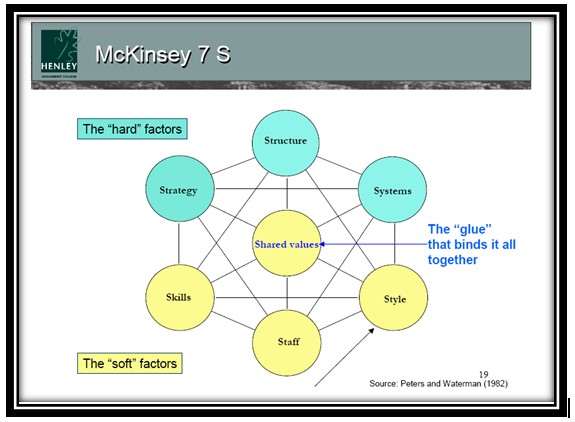
The following section of this paper shall constitute an internal analysis of Thermo King, in order to do so; the 7S analysis has been chosen to perform the internal analysis. The 7S analysis approach shall attempt to present an analysis of 7 major internal aspects of the organization. More information on each of these aspects and their relevance can be found in Appendix II of this paper.
Strategy
The current operation strategy, as adopted by Thermo King, is one that is heavily reliant on technological innovation and banks on the same to ensure that its market share of consumers remains consistent.
Structure
Thermo King functions on a highly formal organizational structure but has seldom brought about any mentionable changes to its structure.
Systems
The systems employed at Thermo King are fundamentally based on Standardised Operating Procedures that personnel are required to follow at all times.
Shared Values
The shared values at Thermo King centre on customer satisfaction, innovation and comprehensive solution provision. Thermo King incorporates a central shared value for its no-compromise attitude towards the quality of its products and the safety of its consumers.
Style of Leadership
Thermo King’s style of leadership is influenced heavily by the presence of standardized operating procedures since personnel seldom fall into decision conflicts and instead choose to comply with the guidelines drawn out to avoid complexity.
Staff
Thermo King employs field staff as well as indoor staff. The general practice of staff at Thermo King relies heavily on the volume of units. Also, the staffs at Thermo King are steadily aging and have become rigid over time.
Skills
Thermo King’s work force is highly skilled and is recognized for its exceptional level of expertise in the transport refrigeration industry. Thermo King also excels in skills with respect to finance and product development.
Distinctive Capabilities
Architecture
At Thermo King, there is a significant degree of following of Standard Operating Procedures and this allows Thermo King to function effectively without having to channel time and resources towards consensual decision making practices.
Reputation
Thermo King is known for striving to meet consumers’ needs and demands. It is known for its quality of products but there is a significant degree of shortfall in its services sector. Consumers perceive Thermo King’s service division to be slow and often unreachable at a time when they are required.
Innovation
Thermo King remains unmatched in terms of innovation. Its cryogenic refrigerating units are considered to be the perfect products in terms of quality and environmental protection. However, its innovative leaps are undermined by its inability to provide effective after-sales services.
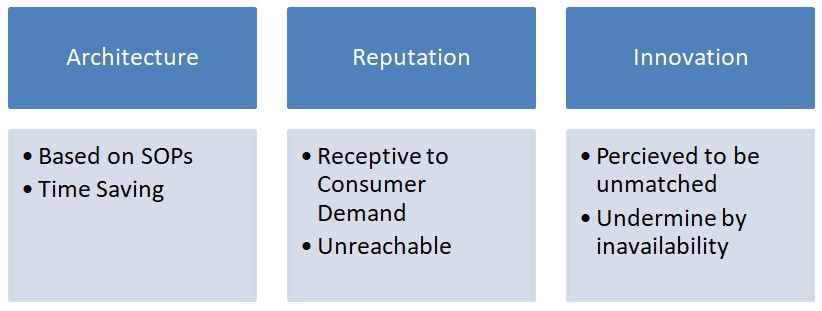
External Analysis
Porter’s Five Forces
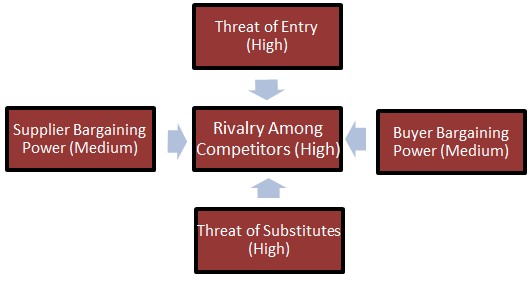
Threat of New Entrants
The threat of New Entrants is high since governments are encouraging companies to enter the transport refrigeration industry if their products and services are environment friendly. Also, cheaper alternates can be found in the form of external yet strong companies such as Hwasung Thermo. More information on Hwasung Thermo can be found in the Appendix.
Power of Customers
Customers have a significant degree of power in the transport refrigeration market because the consumer segment for transport refrigeration constitutes of larger organizations and services. It is for the same reason that customers have a significant degree of power.
Industry Competiveness
The number of players in the transport refrigeration has increased slowly yet steadily in the last few years and a large number of suppliers have entered the transport refrigeration market. Thermo King has been reporting profits from a well maintained consumer base but the increasing levels of industry competitiveness in the next few years may serve to reduce this consumer base and decrease profits.
Power of Suppliers
Thermo King has always chosen to produce in high production volumes and it is for the same reason that the power of suppliers is low. However increased competition and demand for augmented products in the industry may put its independence with suppliers at risk in the years to come.
Threat of Substitution
Currently, Thermo King has a strong consumer base which finds Thermo King appealing because of its reputation as a premium and uncompromising brand. However, with the advent of new companies in the industry, consumers may find Thermo Kings brand standards to be inferior to those supplied by the competition and the currently strong market base may become a dwindling segment of consumers.
VMOST Analysis
Vision
The vision of Ingersoll Rand, which is the parent organization in the case of Thermo King, is to bring the capabilities of its personnel and the recognition of its brand into use in a manner such that it is able to develop long term relationships with its clientele in the Climate Control Industry. The supplementing purpose of this vision is to stimulate continuous growth in shareholder value.
Mission
The mission of Ingersoll Rand is to ensure customer satisfaction by delivering the quality that they promise and providing consumers with better options to choose from while developing stronger relationships with them without any compromises or shortfalls.
Objectives
The central objective of Thermo King is to be an undeniably valuable subsidiary of Ingersoll Rand. The company also gives special attention to increase in sales revenues as well as to increase in operating income.
Strategy
The Thermo King strategy is one that encourages bolt-on acquisitions while striving to maintain operational excellence through continuous work on the consumer base. The Thermo King strategy also incorporates the realization of the significance of inventory turn, inbound ownership, flexible work agreements and similar essential aspects.
Tactics
Thermo King’s tactics can be surmised from Ingersoll Rand’s scorecard process which takes account of operating income, quality, net productivity of manufacturing, delivery performance, lost time accidents and reduction of fixed assets.
Industry Life Cycle
When developing a transformation strategy for a firm, it is of the utmost importance to take account of the position of the firm in the industry life cycle. In the case of the current market for refrigeration systems and transport refrigeration systems in particular, it would not be unreasonable to speculate that the industry is currently going through its maturity phase.
Industry Competition
Competition in the case of Thermo King includes Eurofrigo, GAH, Zanotti, Frigoblock, Carrier and a few others. Among these, Carrier, Frigoblock and Eurofrigo are traditional competition for Thermo King while Zanotti has recently begun to acquire a slow yet steady market share through its low cost units. Carrier is known for its over five hundred service centres across Europe and is actually a division of United Technologies. Frigoblock is known for its singular and highly motivated involvement in mobile refrigeration and is therefore one of Thermo King’s most direct competition. Frigoblock has a highly expansive breadth of operations covering Germany, Benelux, the United Kingdom, Switzerland and Austria. More information on significant competitors can be found in the Appendix.
SWOT
Strengths
- Thermo King has the advantage of Ingersoll Rand’s global recognition and distribution infrastructure.
- Thermo King is a recognized comprehensive solution provider for companies that rely on the Cold Chain during product transit and storage phases.
- Thermo King excels and in areas of Long haul and Distribution.
- Thermo King excels in its recovery network and is considered to be immaculate in product quality.
Weaknesses
- Thermo King offers dealer services that are far less than those required by modern day dealers.
- Thermo King lacks the level of brand recognition that is possessed by other players in the field such as Carrier and Frigoblock.
- In circles where Thermo King is recognized, it is considered to be a premium brand.
- Thermo King provides refrigeration systems that are highly complex and therefore the degree of reliance that maintenance department personnel have on Thermo Kings customer support extends to extremely high levels.
- Thermo King’s products and services are highly sophisticated but Thermo King does not provide customer service as convenient to access as Carrier.
- Thermo King’s recovery service and initial investment costs are considered to be much higher than those offered by competitors in the field.
Opportunities
- Solutions to increase energy efficiency are in more demand now than they were ever before.
- Long term market trends appear to be favourable.
- Concern for reduction in food spoilage and surplus food wastage has spurred the need for enhanced refrigeration systems in the sectors of dairy, pharmaceutical, poultry, floral, meat, seafood, fruits and vegetables.
- Thermo King Employees are highly trained and experienced while Ingersoll Rand engages in extensive training which can be provided to Thermo King Employees in order to improve the product and service quality.
Threats
- Currently, the Climate Control Technologies segment at Ingersoll Rand, of which Thermo King is a component alongside Hussmann, is generating net revenues in a fluctuating manner. In 2007, a growth rate of 6.4% was experienced while 2008 experienced a -0.5% rate of change. This trend can be interpreted to reveal that there may be trends in the transport refrigeration industry that may have unfavourable implications for Thermo King since Ingersoll Rand’s Thermo King and Hussmann both serve the transport refrigeration industry (Ingersoll Rand 2008).
- The recent global market downturn has led to the deterioration of numerous business opportunities with regard to operational levels of business.
- Steadily developing global demand for carbon emission reduction may discourage consumer segment for active engagement in refrigeration procurement.
- Refrigeration product and service consumers may develop a desire to reduce use and procurement or may engage in active switching between refrigeration product and service suppliers of refrigeration systems in an attempt to facilitate energy saving measures.
- Consumers may choose to go for alternates that are less known in an effort to reduce perceived costs.
- The Frigoblock customers are a loyal consumer lobby that Thermo King has not been able to penetrate as yet.
- Consumers have chosen to find a low cost alternate in the form of Zanotti units and this may cause cost conscious consumers to switch to purchasing Zanotti units permanently (Frost & Sullivan 2002).
Problem Identification
The problem in this scenario, as observed through the internal analysis and external analysis of Thermo King, is present in the fact that Thermo King is currently recognized as a strong player in the transport refrigeration industry and has been so for the past few decades. This condition has remained more or less stable for Thermo King before as well as after its acquisition by Ingersoll Rand. However, over time, Thermo King has developed a reputation for slow and often unavailable customer service. While this issue may not be one that is leading to any significant implication in Thermo King’s current standing in the transport refrigeration industry, the analysis showed that external companies shall soon be attempting to penetrate the European and American markets and that shortfalls that appear to be minor and of no significant concern currently may become highly significant weaknesses for Thermo King.
External threats currently posed for Thermo King include ones such as Mitsubishi, which is expected to launch a market entry designed to acquire a swift and large market share through a low price selling strategy, or that of Hwasung Thermo which is known for low cost transport refrigeration units in Korea. The advent of transportation refrigeration product and service providers will create a scenario in the transport refrigeration industry where consumers can be expected to resort to these market invaders in an attempt to acquire improved after-sales service which can be expected from them in consideration of their position in the market and their need to acquire a consumer base. Therefore, we can surmise that Thermo King needs to bring about a transformation in its consumer care division as soon as possible if it is to avoid losing its current consumer base and market position as a result of increased competition within the next few years.
Options for Change
In terms of the options for change available for Thermo King, there are a number of options that are available. Firstly, Thermo King’s customer care department, under Ingersoll Rand, can be merged with Hussman’s customer care department, to put together a comprehensive unit for the customer care of Climate Control Technologies for Ingersoll Rand. Thermo King will then have access to a higher number of resources and will be able to acquire a larger market share. However, the combination of Thermo King’s customer care department with Hussman’s customer care department will serve to bring about a trend in consumers to become doubtful of Thermo King’s abilities to provide quality products and services.
The second option available is to bring about a complete transformation of Thermo Rand such that its customer care department ceases to function through SOPs and makes use of customer centred and CRM influenced methods to carry out its day to day functions. This recommendation has been made in light of the fact that the research carried out showed that consumers are not entirely satisfied with the quality of service that Thermo King is currently providing. However, it was also observed that Thermo King has all the required resources to put together an immaculate customer service department and this recommendation has been made in order to avoid the generation of a scenario in which an otherwise highly productive strength becomes a weakness.
The third option at hand is to establish a new consumer services division alongside its customer care department. This recommendation has been made with the presumption that the customer service division will not only handle customer service queries but will serve as a user friendly front for Thermo King’s current and potential consumers to provide information to them whenever they require it by forwarding queries of such nature to customer care. It is recommended that the Consumer services department is put forth with the singular objective of providing current customers with a strong after-sales service that consumers’ find unparalleled by other transport refrigeration product and service suppliers.
While the first recommendation may be one that may not appear to be one that can be resorted to on an immediate note, it is highly recommended that the second and the third are considered in order to allow Thermo King to continue its steady rate of growth in the future. These recommendations hold significance in light of the fact that while Thermo King is currently apparently stable, there is a significant need to reinvent certain practices in order to keep itself safe from the threats that it is facing in the long run; the most prominent of which is that of Hwasung Thermo’s expansion in to Thermo King’s consumer market.
It is essential to note that the transformation is one that is meant to assist in the development of Thermo King is not being brought about because of any constraints upon the company. It is also considered that by implementing a revolutionary transformation plan, the company will be able to develop at a pace far more rapid than its current pace and shall be able to provide better products and services. The assumption continues to incorporate that Thermo King will not be able to carry out successful operations unless it implements a significant change as soon as possible.
SFA Analysis
The SFA analysis shall now be used in an attempt to screen the three recommended options for Thermo King. Each step in the SFA model shall be used to screen out possibilities that do not qualify the requirements of the analysis phase and the model will be used in a manner such that the ideal option remains legible through all three phases of the SFA analysis.
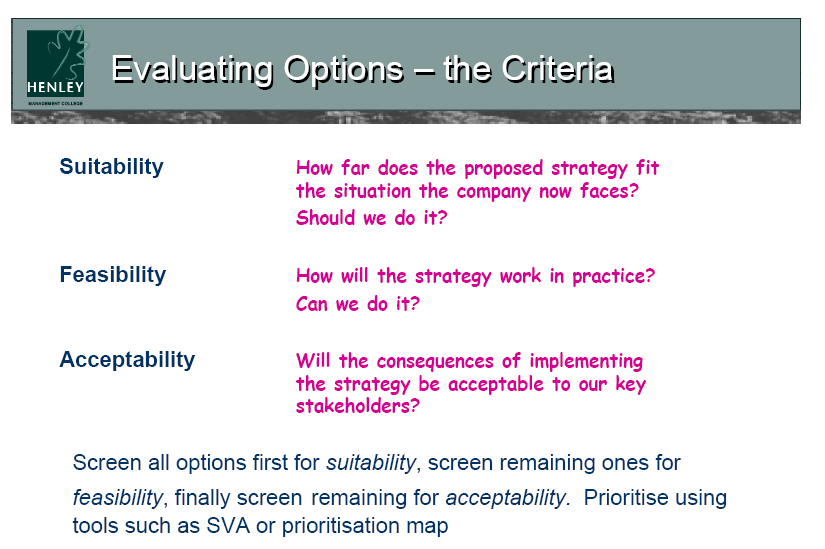
Sustainability Analysis
Merging of Thermo King’s and Hussmann’s Customer Support divisions
The margining of Thermo King’s and Hussmann’s customer support divisions shall serve to exploit the current combined strength that Ingersoll Rand holds in terms of Customer support. However, it is essential to note that the implementation of this particular strategy will bring forth a highly complex scenario where issues for Hussmann’s current customer support can forth. In the case that any serious issues are generated, collateral damage can be experienced in the form of the quality of Hussmann’s customer support deteriorating because of Thermo King’s load of customer support queries. Therefore, there is a chance that instead of capitalizing on strengths, the merging of the two departments into one may cause the generation of a weakness. It is because of this reason that the option of margining the customer care departments of the two companies is considered to one that does not qualify the test of Sustainability.
Transformation of the Thermo King Customer Care Department
By transforming the Thermo King Customer Care Department into one that operates upon the basis of a customer cantered approach rather than on the basis of standard operating procedural guidelines, Thermo King shall be exploiting an opportunity that is present in the form of a need across its consumer market. This need, as judged by the analysis performed above, is for Thermo King to provide its consumer base with an active and customer cantered support system that the customers can have access to whenever they need it.
Thermo King is already recognized as a market leader in its primary regions of operation and the development of the fundamental operating methodology of its customer care department will allow it to counter the threat of losing its consumer base because of a continuously inconsistent customer support system. The development and reinvention of customer support practices shall also give Thermo King a chance to redevelop its external appearance so that the consumers can find it to be more compliant with Thermo King’s values. It is therefore concluded that this recommendation stands the test of Suitability in the case of Thermo King.
Creation of a new Consumer Services Department
Thermo King is currently a market leader and is generating a steady stream of revenues that can be relied upon for the next few years before external competition enters the market. It is because of the same reason that while initial costs for the development of new Customer Service department shall appear to be high they shall not be of any less worth considering the fact that the move shall allow thermo king to maintain its current consumer base in the face of low-cost motivated competition.
The development of this new department shall allow Thermo King to counter its current weakness while establishing a new strength that will make way for opportunities and protect it from weaknesses in the long run as well. Considering the fact that this department shall focus solely on the current consumer base that Thermo King is selling to, the department will be able to function in a robust manner and will be able to exercise Customer Relationship Strategies with efficacy and efficiency while reflecting on the fundamental Thermo King value of customer service. It is for the same reason that this recommendation qualifies the initial test of Suitability in the SFA Analysis.
Feasibility Analysis
Transformation of the Thermo King Customer Care Department
The transformation of the Thermo King Customer Care department is a recommendation that shall require a minimal amount of resources on the part of Thermo King. However, it is essential to note that the recommendation will require extensive redesigning of job structures and will call for an extended and comprehensive look into current practices at Thermo King that are being carried out on the basis of Standard Operating Procedures. At the same time, the transformation will be one that will be highly internal and will have extremely passive effects on the consumer base. While Thermo King is more than competent to carry out such a transformation, this particular recommendation for transformation is not one that will serve the purpose of setting Thermo King apart from its competition and increasing customer satisfaction levels. The consumers may notice a change in Thermo King’s customer service but one can speculate that a change of attitude will not alone suffice in the face of increasing competition where the competitors are using low cost sales strategies as their primary market penetration tools. Since the transformation required is one that can bring about a revolutionary shift in the perception that consumers hold regarding Thermo King’s customer service, this option falls short and therefore does not qualify the feasibility test in the SFA analysis.
Creation of a new Consumer Services Department
Thermo King is currently reporting revenue figures which show that its position is quite strong in the market and it can therefore be speculated that the establishment of a new Customer Services Department shall not be a cumbersome task on the company. The company does not harbour any deficiencies that can be considered to be ones that can cause a hurdle in the development of the department as well. The establishment of the department will allow Thermo King to be able to respond to the growing threat of entry of new competition into the market and will present Thermo King to the consumer in the form of the complete package. Currently, Thermo King’s products are being appreciated for their technological innovation but this highly positive aspect is being undermined by the absence of an adequate customer support infrastructure. The establishment of the Customer Service Department shall allow Thermo King to present a new service to its consumers from which they can benefit while completing what is currently perceived to be an incomplete package of product and service. It is for the same reason that this recommendation is considered to qualify the test of Feasibility for this analysis.
Acceptability
Creation of a new Consumer Services Department
The development of a new consumer services department will allow Thermo King to fulfil stake holder expectations regarding taking appropriate measures to ensure that Thermo King shall be able to maintain its position in the market in the years to come. It is expected that the introduction of the new department and its aggressive commitment to customer service shall have the same effect on Thermo King’s consumer base as could be expected from the introduction of a new brand from Thermo King.
Considering the fact that the establishment of the new department shall not require extensive resources and the department shall function alongside the currently present Customer Care department while operating individually, it can be speculated that the Stake holders shall support the idea. The strategy shall also serve as a stimulant for the acquisition of the goal of the transformation to ensure that consumers find Thermo King to be a brand that cannot be substituted and one that offers the consumers a complete, effective and efficient line of products and services. It is for the same reason that this recommendation is taken to qualify all three requirements of Suitability, Feasibility and Acceptability in this analysis.
Vision for Change
The vision behind the recommended changes is to transform the business in a manner such that the overall satisfaction level that consumers currently derive from their experience with Thermo King’s products and services can be increase exponentially. The current threats to Thermo King place it in a position where there is a good chance that Thermo King will not be able to maintain its high consumer base unless it brings about a drastic change in the way it approaches its consumers. The changes are meant to transform Thermo King’s operational focus such that it becomes relatively more consumer oriented rather than business oriented.
Focus of Change
The change shall be focused primarily upon areas that come into direct interaction with the consumer. Areas such as these incorporate all sales, service and marketing personnel. The change shall aim to reinvent Thermo King’s image in the consumers’ perception as one that is difficult to reach and lethargic in after-sales service to one that is highly active and is truly concerned for the consumer.
The change shall focus on the transport refrigeration industry in particular since it is an industry in which Thermo King can establish its reputation as a customer centred company more swiftly than in other fields of large scale industrial refrigeration.
Implications to Business Strategy
Currently, Thermo King acquires its vision, mission, strategy and tactics from its parent company, Ingersoll Rand. This transformation shall reposition Thermo King such that its vision reinvents into one that aims to provide consumers with the best possible services that they can find. The development of a vision that is entirely consumer centred will provide Thermo King an advantage over the looming threat of foreign competition in the form of Hwasung Thermo in a manner such that while Hwasung Thermo will have to go to extensive lengths to establish its service department, Thermo King has spent decades in the region and will face relatively less difficulties in establishing a level of consumer satisfaction across its customer base that external companies such as Hwasung Thermo will find far too competitive to compete with.
It is imperative to highlight at this point that the implementation of this transformation may initially result in decreased operating income but this deficiency can be expected to be recovered once the transformation has completed. In the case that the transformation becomes successful in its objectives, it is only natural that Thermo King will experience an increase in market share which can be expected to bring about more than a recovery of costs incurred in the transformation.
Implications to Business Culture
In terms of the implications of the transformation on Thermo King’s business culture, the transformation will compel Thermo King to redirect its priorities such that customer needs are placed as the primary business driver. The analysis presented above was more than proof of the fact that Thermo King has acquired a strong recognition in terms of technology and innovation but has fallen short in the case of consumer satisfaction. The transformation shall expect Thermo King to operate at the same level of efficiency with which it is currently functioning while revitalizing Thermo King’s service division.
Effects on the McKinsey 7S Model
Structure
The transformation shall have significant impacts upon a part of Thermo King’s structure in the event that either one of the second or the third recommendations are adopted. Other departments and divisions of Thermo King, such as production, procurement, marketing and sales, shall continue to function in the same manner as they are currently functioning while the customer care department shall undergo significant and revolutionary changes. In the case that the first recommendation is followed, there will be a significant degree of structural change that will have to be carried out and extensive time periods shall be required.
Strategy
The only aspect in which the transformation shall call for a strategy change will be one which deals with consumer concerns and the degree to which Thermo King gives regard to the same. The overall strategy of Thermo King will continue as it currently is while a new perception towards consumer concerns shall be adopted. In the event that the merger between Thermo King and Hussmann is carried out, it is recommended that the strategy adopted is one that follows Ingersoll Rand’s outlook towards customer care as a corporation.
Systems
The transformation shall be one that will attempt to introduce a renewed and highly invigorated concept of customer service to Thermo King and shall therefore have extensive implications upon the systems that are being brought into use in the organization in this regard. The consumer services division will make use of informal systems which shall come as a new element to Thermo King since the company has always functioned in a highly formal and standardized operating procedure with stringent and often rigid guidelines.
Skills
The transformation shall call for personnel with immaculate skills to carry out organization level transformation. Personnel who can nurture technological advantages in a manner such that the derived productivity can be channelled to the consumers shall be needed.
Staff
The transformation does not call for a change to be brought about in the infrastructure Thermo King’s employees since it was observed that they are already recognized in terms of their skill sets and professionalism.
Style
One of the purposes of the transformation of Thermo King into an increasingly active organization shall be to create a high level of recognition of Thermo King’s external perception that the consumer share. The transformation plan calls for an inter
Shared Values
It is recommended in this plan for transformation that Thermo King keeps its initial values intact and does not in any way alter them since it is the practicality of the very same values that the transformation aims to achieve.
Characterizing the Change
The transformation will be of a nature such that it will be brought about through instigation of internal change rather than as a result of external stimulation. The change will not be in any manner meant to generate increased revenues as a direct result but will be carried out to acquire a passive target of increasing customer satisfaction with Thermo King.
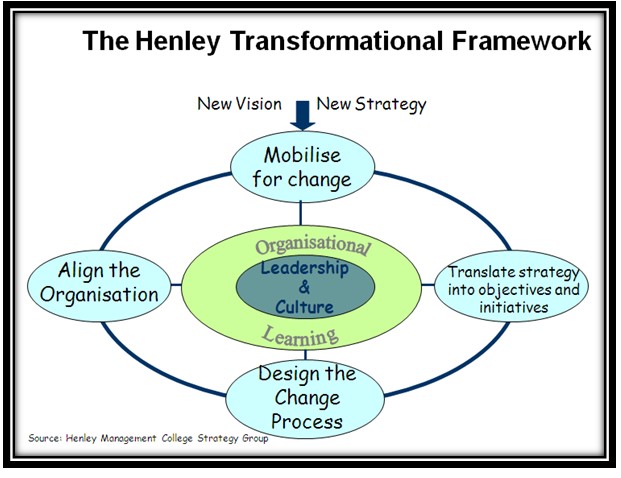
Mobilizing for Change
The implementation of the transformation shall call for a rechanneling of resources in directions that can facilitate the implementation process. Special care will have to be taken to ensure that resources are not over allocated and that designation of authority is carried out in a manner such that the balance of the organization is not tampered with. The transformation is one that calls for a reinvention of the perception held by Thermo King human resource towards consumer satisfaction and will therefore come as something that will be relatively new to them. It is for the same reason that the active measures will have to be taken before the actual implementation of the change directed to make the employees aware of the vision and focus of the transformation.
Announcing the Change
The initial mobilization will be that of the announcement of the plans for the implementation of the change across the organization. This will have to be carried out in a manner such that the relevant employees are made aware of their positions in the organization and the significance of their contributions to the organization, followed by a picture of the actual shortfall that the company is experiencing as a result of the need for improvement. It is recommended that seminars are arranged for Thermo King’s customer care employees in which they are given special and industry specific knowledge about their roles in the organization and the reliance of the organization upon them.
Leading the Change
A special team shall be setup to overlook the process of implementation of the transformation under the recommendations given in the earlier stages of the report. Mr. X and Mr. Y shall be assigned the task of leading the team in a manner such that the transformation procedure is consistently evaluated for the degree of effectiveness with which it is being implemented and the degree of acceptance that it acquires across the Thermo King employees.
Customer satisfaction surveys will be carried out throughout the implementation of the transformation and for a period of two to three years after the implementation has concluded as well. This recommendation has been made in order to ascertain that the reformed face of Thermo King’s customer service department is yielding the desired results or not.
Communicating the Change
When implementing the transformation, it is essential to note that there will be reservations regarding the application of transformation because Thermo King does not display any apparent signs of being in danger of external threats as yet. It is because of this reason that it will be important to communicate the change effectively and to ensure that a system is established so that communication can be carried out consistently and thoroughly throughout the implementation of the change.
In this regard, it is advised that a specific team is established constituting a member of each department involved in the transformation process may it be directly or indirectly. This team will be responsible for ensuring that information regarding the status of the progress of the transformation is communicated without any misinterpretations or miscommunications that may otherwise jeopardize the progress of the implementation of the transformation process.
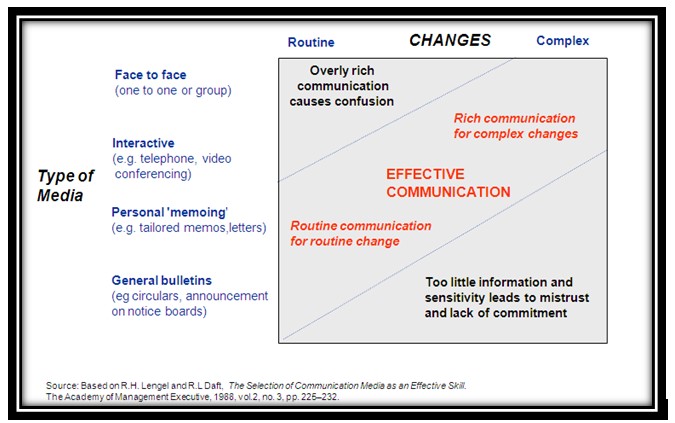
Aligning the Organization
The establishment of the consumer service division of Thermo King shall require extensive reinvention of human resource practices in the company. Thermo King’s day to day functions rely heavily on Standardized Operating Procedures and this transformation calls for the allocation of concern to consumer reservations and apprehensions to the department designated to deal with them. Standard Operating Procedures shall be redefined so that queries that are filed by customers can be instantly forwarded to the Consumer Service department where they can be dealt with as per the consumer’s requirements. Once a query is forwarded to the consumer service department or enters the consumer service department, action carried out to resolve it will be influenced by the nature of the query rather than through standardized operating procedures. This will allow the department to function in a manner such that each query is given individual concern and priority.
Translate strategy into Objectives & Initiatives
The strategy shall be translated into initiatives in the mobilization stage of the implementation of the strategy and shall be translated into objectives by setting targets for increased levels of customer confidence in Thermo King’s services. Surveys mentioned earlier shall be used to monitor performance and progress towards the acquisition of these targets and the development of a consistently optimistic and positive view of Thermo King’ consumer services shall be the objective.
Designing the Change
Of the seven specific areas of Thermo King discussed above as per McKinsey’s perception of the key elements of a company’s culture, the ones influenced the most will be those of structure, skills and system.
Structure: In terms of structure, the change shall call for the introduction of a highly detailed and developed structural change in Thermo King in the case that either one of the second or the third recommendations are adopted. In the case that the first recommendation of the merger of the two constituents of Ingersoll Rand’s Climate Control Technologies segment is adopted, the structural changes shall be next to magnanimous since it will call for the abolishment of certain departments and the reassigning of tasks across the human capital at hand.
Skills: The transformation calls for the implementation of change in the skills of a particular area of Thermo King and shall be carried out in a manner such that the personnel associated with that area are equipped with an enhanced degree of awareness for consumer concerns and customer care in the case of potential as well as current customers.
Systems: The systems at Thermo King shall undergo extensive external implications if considered with regard to the fact that Thermo King’s otherwise traditional and rudimentary method of operation will be exposed to a highly informal and customer centred method of working which is an approach that Thermo King has not been able to exercise to the extent required in the face of steadily developing competition. The implementation of the transformation shall require Thermo King’s employees to acquire an understanding of the new Consumer Services division and may serve to bring about a shift towards a more customer centred approach across the company in broad terms as well.
Organizational Learning
The implementation of the transformation shall require that continuous training is carried out to ensure that the employees at Thermo King understand and come to a point where they acknowledge the need and necessity of the transformation. It is recommended that the establishment of the new Consumer Services division is put forth to Thermo King’s human capital as an example of Thermo King’s renewed approach towards customer satisfaction and regard for consumer concerns as an answer to the threat posed by increasing competition in the industry.
Barriers to Success
Not Establishing a Great Enough Sense of Urgency
The employees and executives at Thermo King have to be made aware of the need for the transformation. Failing to do so may result in the inability to make the transformation a success.
Not Creating a Powerful Enough Guiding Coalition
In the event that the guiding team made is one that is not capable enough for the job assigned to it, there is a significant possibility that the transformation may crash midway of its implementation.
Lacking a Vision
The presence of a clear vision is of the utmost importance in the case of this transformation. The absence of a clear vision will not only serve to cause the transformation strategy to fail to acquire its objectives in the long run but will also render the participants in the transformation incapable of working to achieve the objectives of the transformation.
Under-communicating the Vision by a Factor of Ten
All employees to play in a role in the transformation shall be communicated with through every possible appropriate channel to ensure that no room for a deficiency is left out in the transmission of messages during the implementation of the transformation process.
Not removing Obstacles to the New Vision
Obstacles in the form of distantly placed resources and the absence of required talent will be obstacles that will have to be removed and shall be addressed by Mr. X and Mr. Y as they arise. Other obstacles not mentioned in the paper are those that shall appear as the transformation progresses and shall have to be dealt with and resolved or removed as per need.
Not Systematically Planning For and Creating Short Term Wins
A systematic plan shall be formed that will constitute of short term objectives in order to ensure that the transformation is taking place and is proceeding in the appropriate direction.
Declaring Victory Too Soon
The transformation plan has been designed such that continuous monitoring shall be carried out once the transformation has been implemented and the new department has begun operations. This measure has been suggested in light of the fact that an early declaration of a victory that is actually premature will result in the failure of the system planned out for the transformation to take place.
Not Anchoring Changes in the Corporation’s Culture
The improvements brought about will be not merely limited in their implementation to the Consumer Service department but shall be encouraged and appreciated so that other departments in the organization can also be given confidence to adopt customer centred approaches to operations.
Timetable for Change
Preparation for Change
The plan shall first be presented to the stakeholders and executives of the company in order to acquire their consent on the intricacies of the proposition. It is essential to acquire the approval of the corporate headquarters at Thermo King and that of Ingersoll Rand as well. The human resource department shall have to be brought into the mix and financial approval for drawn out plans shall have to be acquired. The plan shall be put into action primarily in the region of Germany since the threat of entry of new competition is most serious in that region. A time period of approximately six months shall be allotted to this stage of preparation and planning.
Training & Integration
Extensive training workshops shall be held to allow the current human capital at Thermo King to function seamlessly with the new department and to enable them to understand the role and responsibilities of the same. All of Thermo King’s employees shall be given comprehensive knowledge of the manner in which they are to coordinate with the department and of any responsibilities that have been reassigned. It is suggested that reliance on mere memos is avoided and workshop level training courses are carried out in this phase to ensure that no room for confusions or misunderstandings is left out.
Tangible development of Consumer Services Department
Once resources and finances have been channelled towards the development of the new department, within the next eight months, the department will have been set up and will be ready to function alongside Thermo King’s current operations in the chosen initial region. It is at this point that a comprehensive check will be run on the department to ensure that there is no room remaining for development or improvement since the department is one that deals with service and an error neglected during the development stage can lead to negative consequences during implementation.
Launching of Campaign to commence operations
After a period of approximately one and a half year, Thermo King shall launch a campaign to introduce the new department to its wide consumer base. Information regarding the department and its ever ready form of service shall be provided to consumers through customized flyers for current consumers as well as radio based commercials since a large volume of Thermo King’s consumers are in the field of trucking and the trend of listening to the radio while delivering goods prevails across truck drivers to date. It will allow Thermo King to penetrate the consumers at the very lowest level while addressing upper level management through face-to-face or more direct means.
Continuous monitoring & Celebration of Victory
Through continuous monitoring, the transformation shall be tested for the degree of confidence it has created amongst consumers and the consumer services department shall operate on the basis of the feedback it receives from these surveys to ensure that it operates in the exact fashion that is most convenient to Thermo King’s consumers.
Summary
The transformation plan is one that is meant to reinvigorate Thermo Kings perception towards customer care altogether through the introduction and integration of a new department referred to as the Consumer Services department into the organization. The purpose of doing so is to develop Thermo King in a manner such that it can be in an unshakeable position and free of vulnerabilities when competition enters the market with low cost strategies. The transformation plan is one that is fundamentally based on continuous monitoring of the new division of Thermo King and has been designed to ensure that no room is left for vulnerabilities to cause damage to the organization through.
The report is based on the speculation that Thermo King is a market leader with an admirable consumer base but the threat of new entrants is one that can cause damage to Thermo King’s consumer base and possibly cause the consumer base to shift from Thermo King to alternate suppliers in an attempt to cut costs. The aim of this transformation report is to bring Thermo King in a position where the consumer base can be convinced to remain with Thermo King in the face of such competition.
List of References
Deutsche, C. H. (1997) Ingersoll-Rand to Buy Westinghouse’s Thermo King Unit. Web.
Frost and Sullivan. (2002) Strategic Assessment Of The European Large Refrigerated Truck Market: Voice Of The Customer. London: Frost and Sullivan.
HwaSung Thermo. (2006) History.
Ingersoll Rand. (2008) Annual Report. Dublin: Forest Stewardship Council.
Ingersoll Rand. (2008) 2008 Annual Report. Ireland: Forest Stewardship Council.
Ingersoll Rand. (2008) Ingersoll Rand at a Glance. Ireland: Ingersoll Rand Company.
Layover.com. (2007) Thermo King Dedicates $1.7 Million R&D Center Investment to Frederick.
Scholes, K. and Johnson, G. (2008) Exploring Corporate Strategy: Text and Cases with Exploring Strategic Financial Management. New Jersey: Pearson Education, Limited.
Sysco Corporation. (2009) Sysco Honors Suppliers Thermo King Corporation, RefrigiWear Inc., and Orion Energy Services.
Thermo King. (2009) History of Thermo King.
Thompson, J. L. (1990) Strategic Management. London: Chapman and Hall.
Yahoo! Finance. (2009) Carlisle Companies Incorporated Company Profile.
Yahoo! Finance. (2009) Carrier Corporation Company Profile.
Yahoo! Finance. (2009) Marshall of Cambridge (Holdings) Limited Company Profile.
Appendix
Extended Range of Products
Thermo King offers a wide range of products and services. These include the following:
“Retail Solutions, Display Merchandisers, Refrigeration Systems, Port-a-Pak Refrigeration and Electrical Houses, Coils and Condensers, Service and Maintenance, Trailer, Truck and Rail Diesel-Powered Temperature Control Systems, Vehicle-Powered Truck Refrigeration Systems, Cryogenic Temperature Control Systems for Trailers and Trucks, Containers and Gensets, Hybrid Auxiliary Idle Reduction and Temperature Management Systems, Bus and Rail HVAC, Refrigeration Systems, Coils and Condensers, Installation, Service and Maintenance, Design Engineering/Consulting, Facility Health Check (FHC), Cold Chain Management Services and Professional Services and Technology Integration” (Ingersoll Rand 2008).
Thermo King Acquisition
In the latter part of 1997, Thermo King was bought from its initial owner organization, Westinghouse Electric Corporation, for a cash value of $2.56 Billion. At the time of its acquisition, Thermo King was reporting revenues of over $990 million with earnings of over $140 million (Deutsche 1997). Thermo King was at that time recognized as a global leader in transport refrigeration with a solid consumer base that covered half the transport refrigeration industry across the globe.
Thermo King awarded 2008 Operations’ Suppliers of the Year
Earlier this year, Sysco Corporation recognized Thermo King as one of three companies to be awarded the honor of being distinguished as the 2008 Operations’ Suppliers of the Year. By qualifying for this honor, Thermo King proved its effectiveness in the areas of cost and efficiency. The honor also signified Thermo King’s ability to function through coordinated team work and in compliance with ethics and integrity. The honor recognized Thermo King’s maintenance of quality in its products and signified Thermo King as a consumer friendly product and service provider (Sysco Corporation 2009).
Top Competitors
“Eurofrigo sells its units in more than 65 countries around the world throughout a qualified network of distributors, dealers and service centres. We have branches in Australia – Melbourne (Eurofrigo Australasia Pty Ltd.), in Thailand – BKK (Eurofrigo Asia Pacific Co. Ltd.), in Toronto – Canada (Eurofrigo Inc.), in Austria – Vienna (Eurofrigo Dsl) and in Murcia – Spain (Eurofrigo Espana) and [is] planning to open new branches in other countries to satisfy all market requirements (Euro Frigo, 2009).
“Eurofrigo has today a flexible manufacturing capacity of over 3.000 units per year. Our units are the result of years of researches and we use selected raw materials to guarantee the maximum capacity and the highest reliability in transporting perishable products in short, medium and long hauls. Eurofrigo is ISO 9001:2000 quality system certified to guarantee the quality of our processes even further” (Euro Frigo, 2009).
“Carrier Corporation is a leader in providing heating, ventilation, air-conditioning and refrigeration (HVACR) systems, controls, services and sustainable building solutions for residential, commercial, industrial, food service and transportation applications. It is a subsidiary of United Technologies Corporation” (Carrier, 2009).
“Willis Carrier invented the first system for “manufactured weather” in 1902, he sparked an industry that revolutionized the way in which we live, work and play. From that defining moment – and through to the present day – Carrier has been a company built on a legacy of innovation. For more than a century, [Carrier’s] research, expertise and forethought have resulted in market-leading innovations and “firsts” that have shaped and defined the heating, air conditioning and refrigeration industry. Through [Carrier’s] history of product excellence and committed customer service, [Carrier] has evolved into a global company serving millions of people and businesses in 172 countries on six continents around the world” (Carrier, 2009).
“On July 1st, 1978, kuk kunststoff- und kältetechnik Grosskopf GmbH was founded as the successor company of Kühlhaus- und Kältetechnik Großkopf GmbH, the sister company of Großkopf Tiefkühl KG. This company, in the fifties, was a pioneer in the distribution of deep frozen products, with a fleet of about 100 distribution vehicles. Fridgoblock Grosskopf GmbH is [now] the third-largest manufacturer of transport refrigeration systems in Europe, right after two American companies who sell their equipment world-wide. However, Fridgoblock leads the way in alternator and diesel electrical drive technology as well as in eutectic holdover refrigeration technology” (Frigoblock, 2009).
Hwasung Thermo was established in 1977 and is recognized today as Korea’s first truck refrigeration company. It is known as the Korean pioneer in truck refrigeration and is an Original Equipment Manufacturer for Hyundai Motor Company, Daewoo Motor Co and Kia Motor Company. Over time, HwaSung Thermo Co., Ltd. has been preparing to enter the transport refrigeration market in Europe in the next few years. Hwasung has already been exporting to South America and Australia amongst other overseas regions and it is only expected that it will soon be entering into regions where it will be competing aggressively with Thermo King, Carrier and other players of the industry. (HwaSung Thermo 2006).
“Commercial manufacturing group Carlisle Companies is nothing if not diverse. Through dozens of subsidiaries, the company makes an array of products that include construction materials, industrial components, foodservice equipment, and aerospace wire and cable assemblies. Representing nearly half of the group’s sales, the construction materials segment includes rubber and plastic roofing system products, as well as rigid foam insulation, waterproofing, and protective coatings. Its industrial components segment primarily makes wheels and tires for lawn and garden equipment, all-terrain vehicles, and golf carts. Carlisle sells its products globally, but the US accounts for around 90% of sales” (Yahoo Finance 2009).
“Carrier helps people keep their cool when the heat is on (and vice versa). The company is the world’s largest maker of HVAC equipment and refrigeration systems for residential, commercial, industrial, and transportation needs. Through Carrier Transicold, it makes truck/trailer and container refrigeration equipment and provides transport air-conditioning systems for bus, rail, and marine customers. Carrier also provides aftermarket services and components for its products. The company is a subsidiary of diversified manufacturer United Technologies Corporation (UTC); it accounts for about a quarter of UTC’s sales. Carrier operates around 60 manufacturing facilities and has dealers in more than 170 countries” (Yahoo Finance 2009).
“Among the largest privately held entities in the UK, the Marshall Group comprises several operating subsidiaries. Marshall Aerospace designs, develops, and converts military, civil, and general aircraft, while Marshall Motor Group includes auto dealerships. Marshall Specialist Vehicles designs and supplies specialized commercial vehicles for the military and medical markets. The Marshall Group was founded by David Gregory Marshal in 1909 as a chauffeur drive company (Yahoo Finance 2009).
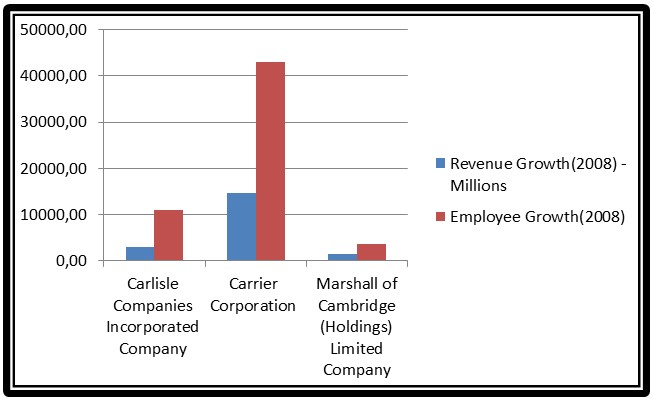
Models used
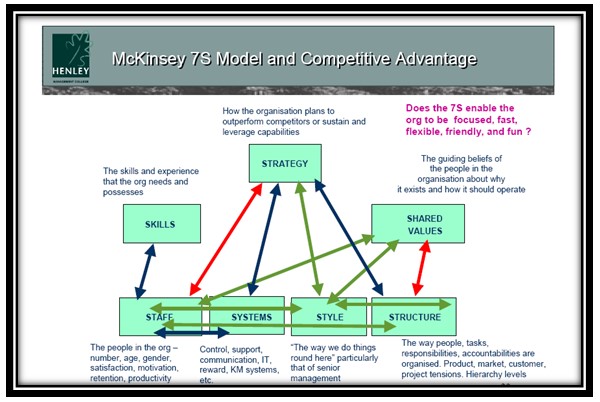

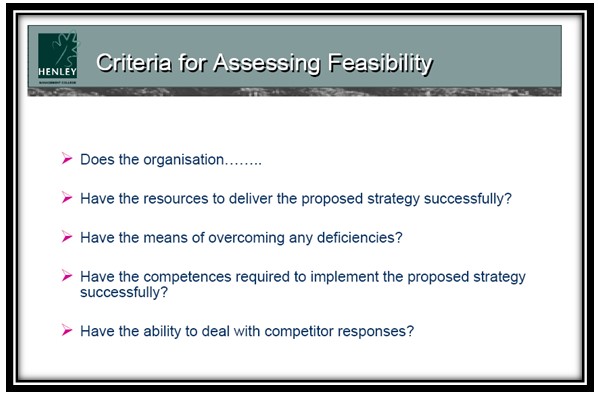
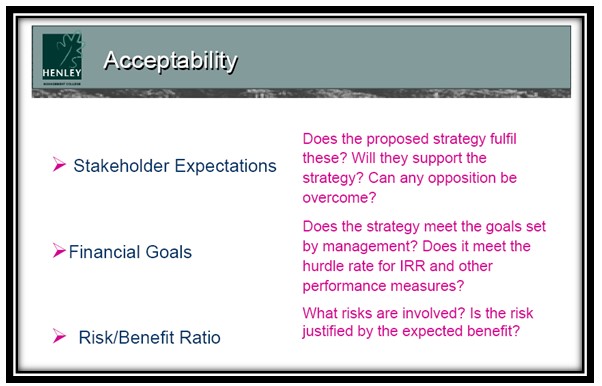
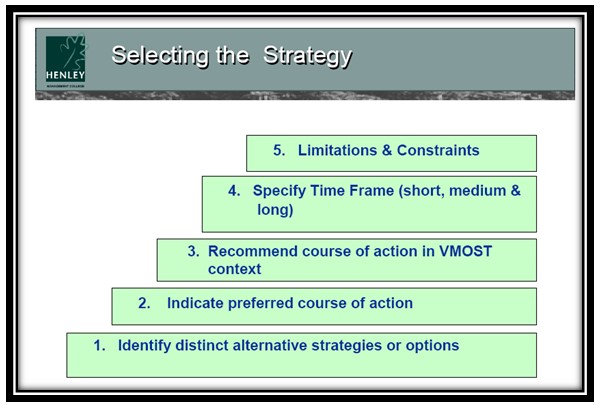
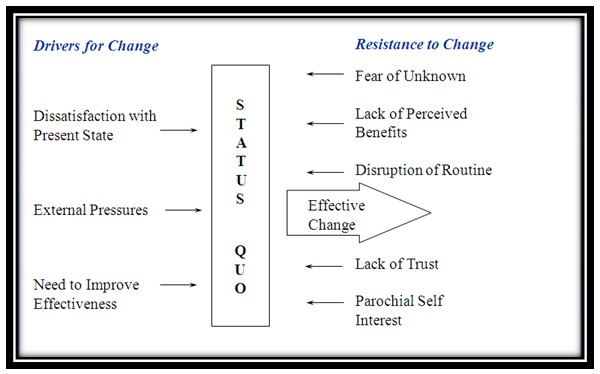
Key Financials
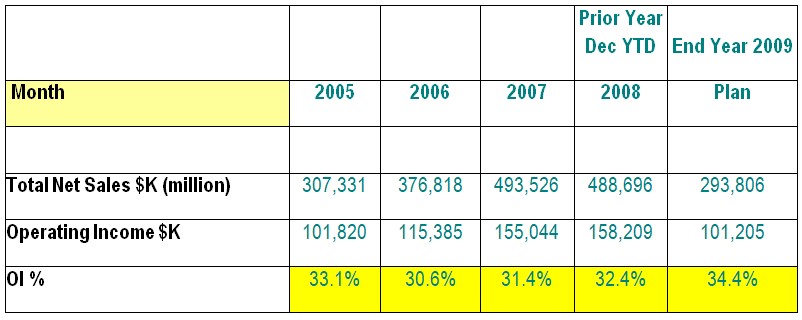
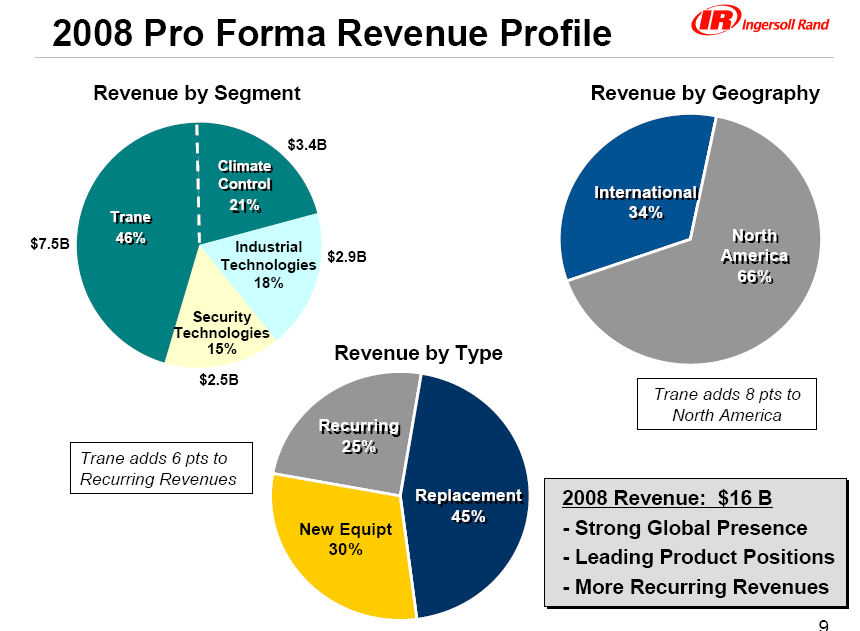
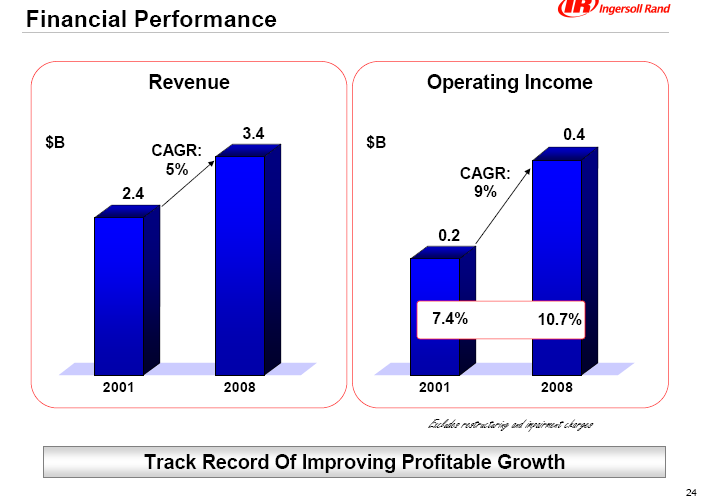
Glossary of Terms
Refrigeration Unit
A refrigeration unit is unit that serves to provide a sub-degree climate for particular perishable products.
Transport Refrigeration
“Transport refrigeration is essential in today’s society, to preserve and protect food, drugs and medical supplies for people worldwide. It includes transport of refrigerated products with reefer ships, intermodal refrigerated containers, refrigerated railcars and road transport including trailers, diesel trucks and small trucks” (The Alliance, 2009).
7S Analysis
The 7S analysis was put forward by McKinsey as a framework for analyzing an organization internally.
“Strategy: The plan devised to maintain and build competitive advantage over the competition. Structure: The way the organization is structured and who reports to whom. Systems: The daily activities and procedures that staff members engage in to get the job done. Shared Values: Called “super ordinate goals” when the model was first developed, these are the core values of the company that are evidenced in the corporate culture and the general work ethic. Style: The style of leadership adopted. Staff: The employees and their general capabilities. Skills: The actual skills and competencies of the employees working for the company” (Mind Tools, 2009).
Porters Five Forces
“Michael Porter has identified five forces that are widely used to assess the structure of any industry. Porter’s five forces are the Bargaining power of suppliers, bargaining power of buyers, Threat of new Entrants, Threat of substitutes, and Rivalry among competitors. Together, the strength of the five forces determines the profit potential in an industry by influencing the prices, costs, and required investments of businesses—the elements of return on investment. Stronger forces are associated with a more challenging business environment” (Agricultural Innovation & Commercialization Center, 2004).
SWOT
“The SWOT Analysis consists of an external scan and an internal assessment. The External Scanning Process is undertaken to identify the major threats and opportunities that face the organization in the foreseeable future. The Internal Assessment Process is conducted to examine the strengths and weaknesses of the organization and its ability to respond to threats and take advantage of opportunities” (North Carolina Department of Transportation, 1998).
Transformation Plan
A transformation plan is a program for the implementation of a drastic and unusual change in the organization. It is fundamentally meant to cater to a need for a revolutionary alteration in the organization in order to either increase the organization’s productivity or to allow the organization to function more effectively.

